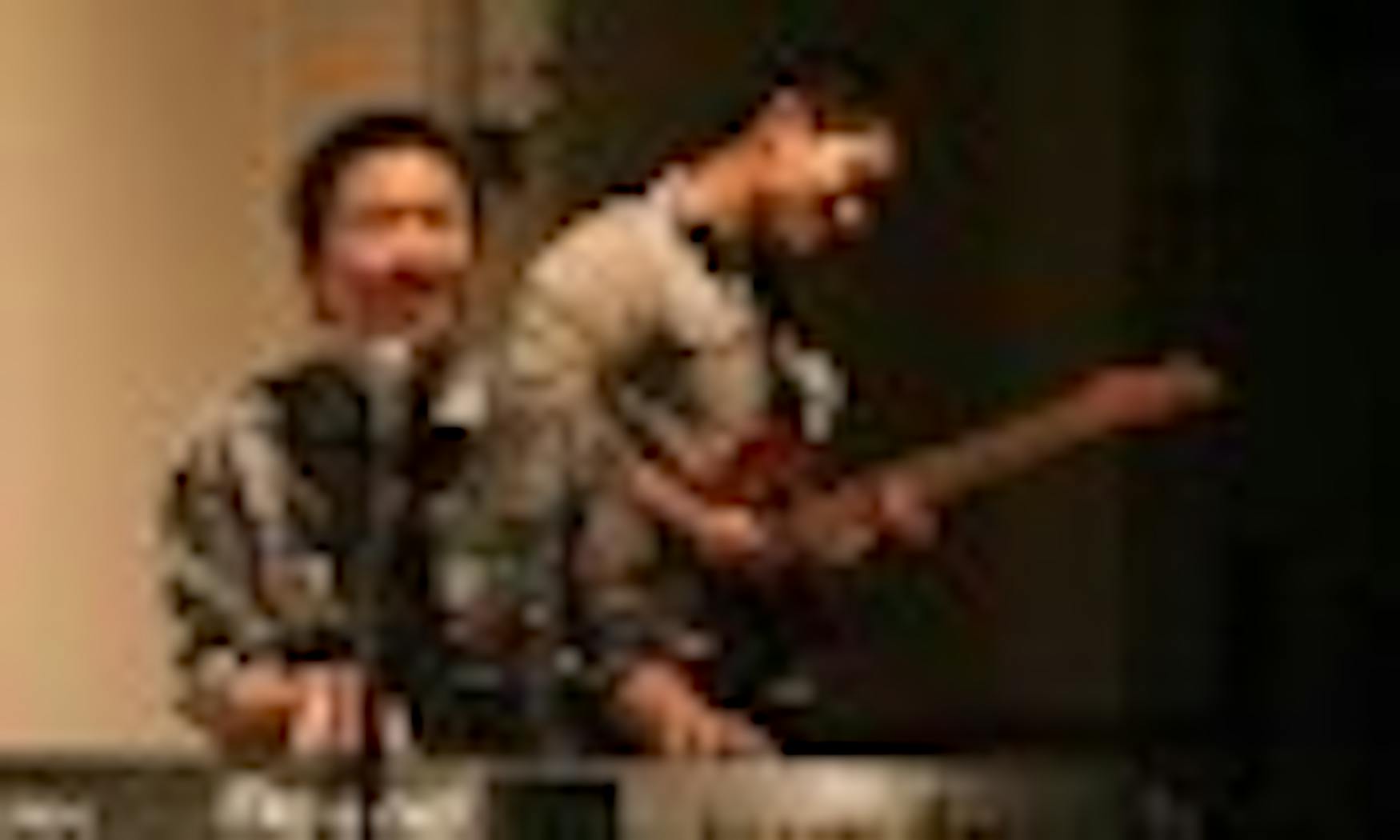Asian-Pacific American Heritage Month finishes strong at its concluding event
Last Sunday marked the end of Asian-Pacific American Heritage Month at Brandeis, a month-long celebration of Asian-American culture. APAHM featured many events centered around Asian-American culture, including the SKINS Fashion Show, which was hosted by Brandeis Asian-American Student Association; Southeast Asia Club's lion dance showcase; and Bubble Tea Night. The closing ceremony, which took place in the Hassenfeld Conference Center, featured traditional food and spoken-word poetry, as well as a band made up primarily of Asian-American performers. Prof. Shilpa Davé (AMST) opened the ceremony with the introduction of Giles Li, a Boston-based poet who also founded the Boston Progress Arts Collective in 2005. BPAC is "a community of [Asian-American] artists that aims to create a supportive space and outlet for personal growth, creative expression and artistic exploration," according to the group's website. Li is also the Arts coordinator for the Boston Chinatown Neighborhood Center, an organization that provides services and support to Chinese immigrants and low-income families.
In addition to Li's volunteer work, he is also a commendable writer. The poet performed seven of his pieces, including "Crappy Christmas Poem in Seven Parts," about the myth of Santa Claus and consumerism in American culture; and "Grizzly Bear," which analyzed humans' fear of wildlife and our impact on nature from the perspective of the titular animal.
Between the poems, Li chatted with the audience and spoke about his life, including his feelings about growing older and being responsible for his family. He also sang a verse of his "favorite hip-hop song" ("Bring it All to Me" by Blaque feat. J.C. Chasez) and Justin Bieber's "Baby," which made the crowd laugh and cringe simultaneously. Despite the poet's comical antics, he also performed more serious pieces about misogyny and homophobia in the Asian-American community.
The Charlottesville, Va.-based band tim.be.told performed after Li. The group, which is comprised of four Asian-American musicians and one white musician, is well known within the Asian community, according to BAASA Co-president Victoria Lee '13. Tim.be.told is a Christian band, but most of the group's music-which has a soft rock, singer-songwriter vibe-sounded more radio-friendly than religious.
Keyboardist and lead singer Tim Ouyang spoke about the feelings of sadness and loss that people have experienced surrounding the earthquake in Japan, as well as the hardships of everyday life. The band's song "Humanity" (also the title of the group's first album) expresses Ouyang's desire for hope. The singer urged crowd members to sing along with the chorus. Ouyang's high tenor voice was beautiful to listen to, and the other members' complex overlaid instrumentals melded well together to create a complex and enjoyable sound.
After tim.be.told's performance, which ended with a crowd-initiated encore, traditional Asian food, made by the BAASA executive-board, was served. BAASA Co-president Stephanie Lee '13 commented on the overall success of the month. "Attendance was definitely better than last year," she said. "More people know about APAHM and the specific events on campus."
Lee added that she "enjoyed working with the different clubs and meeting people who kept coming back to different events . APAHM is not just for Asian-American students. Everyone who is interested in our culture can celebrate.



Please note All comments are eligible for publication in The Justice.